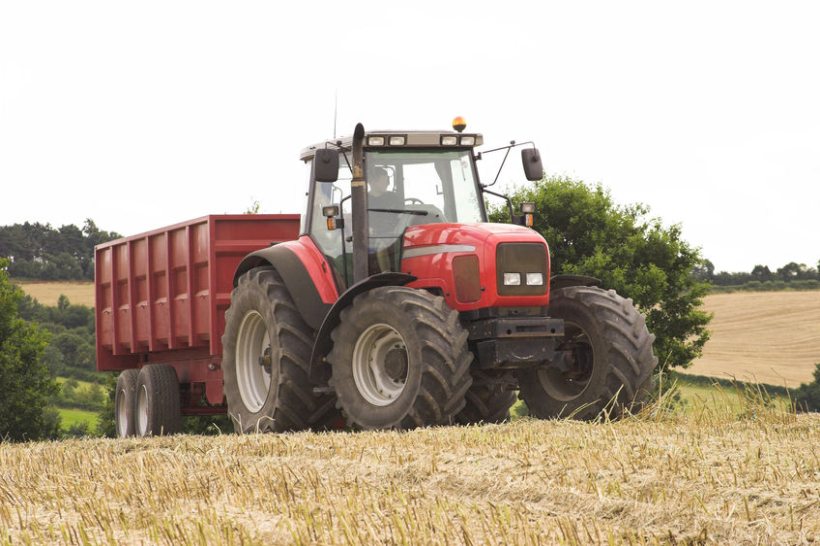
Farmers forced to use their own tractors and trailers for harvest transport because of the current shortage of lorry drivers have been told to ensure safety by regularly checking brakes and hitch mechanisms.
Farmers have been issued advice by NFU Mutual to ensure that tractors and trailers are correctly matched and maintenance schedules are in place to minimise the risk of accidents.
The warning comes as the UK faces disruption to road transport because of a shortage of lorry drivers which is affecting deliveries to supermarkets, hospitality, the construction trade and agriculture.
NFU Mutual has also recommended that all tractor drivers take regular breaks to avoid fatigue and that routes are chosen which avoid congested roads as much as possible.
To help farmers keep safe, the rural insurer also supports the Tilly Your Trailer initiative which enables farmers to get their trailers inspected and get a Tilly Pass which confirms that trailers are safe for road use and comply with safety legislation.
Gwyn Barlow, of NFU Mutual Risk Management Services Ltd, said current the nationwide shortage of lorry drivers was 'adding to the pressures' of this year's harvest.
“Travelling across rough fields and through muddy gateways takes its toll on farm machinery so we are advising farmers to regularly check that brakes are working correctly, lights and indicators can be seen, and windows and mirrors are clean.
“We’re also asking the public to be patient when driving behind tractors for a few minutes and appreciate the need to get the harvest in to feed the nation,” he said.
Tractor and trailer road safety checklist
NFU Mutual has issued a checklist for farmers to ensure that tractors and trailers are safe and ready to use:
• Make sure tractors and trailers are maintained according to manufacturers’ schedules and records kept
• Check your insurance covers you for additional transport work
• Ensure that tractor and trailer lights are working correctly and are clean
• Ensure cab windows and mirrors are clean and intact
• Regularly check trailer hitch eyes for wear
• Make sure flashing orange beacons are fitted and used when legally required
• Keep trailer loads within manufacturers’ capacity ratings
• Pull in when safe to do so, to let following traffic overtake
• Ensure tractor drivers watch out for impatient following drivers trying to overtake when tractors slow down to turn right into fields and farm tracks
• Plan transport routes carefully to avoid congested roads and peak traffic times when possible
• Make sure tractors are correctly matched to trailer weights and have compatible braking systems and comply with the complex laws governing tractor and trailer weights, distances travelled, axle combinations, braking systems and speed limits
• Provide tractor drivers with training on farm equipment and maintenance schedules
• Make sure tractor seat belts are in good condition and used by drivers
• Make sure drivers take regular breaks to avoid fatigue
• Instruct tractor drivers not to use mobile phones while driving
